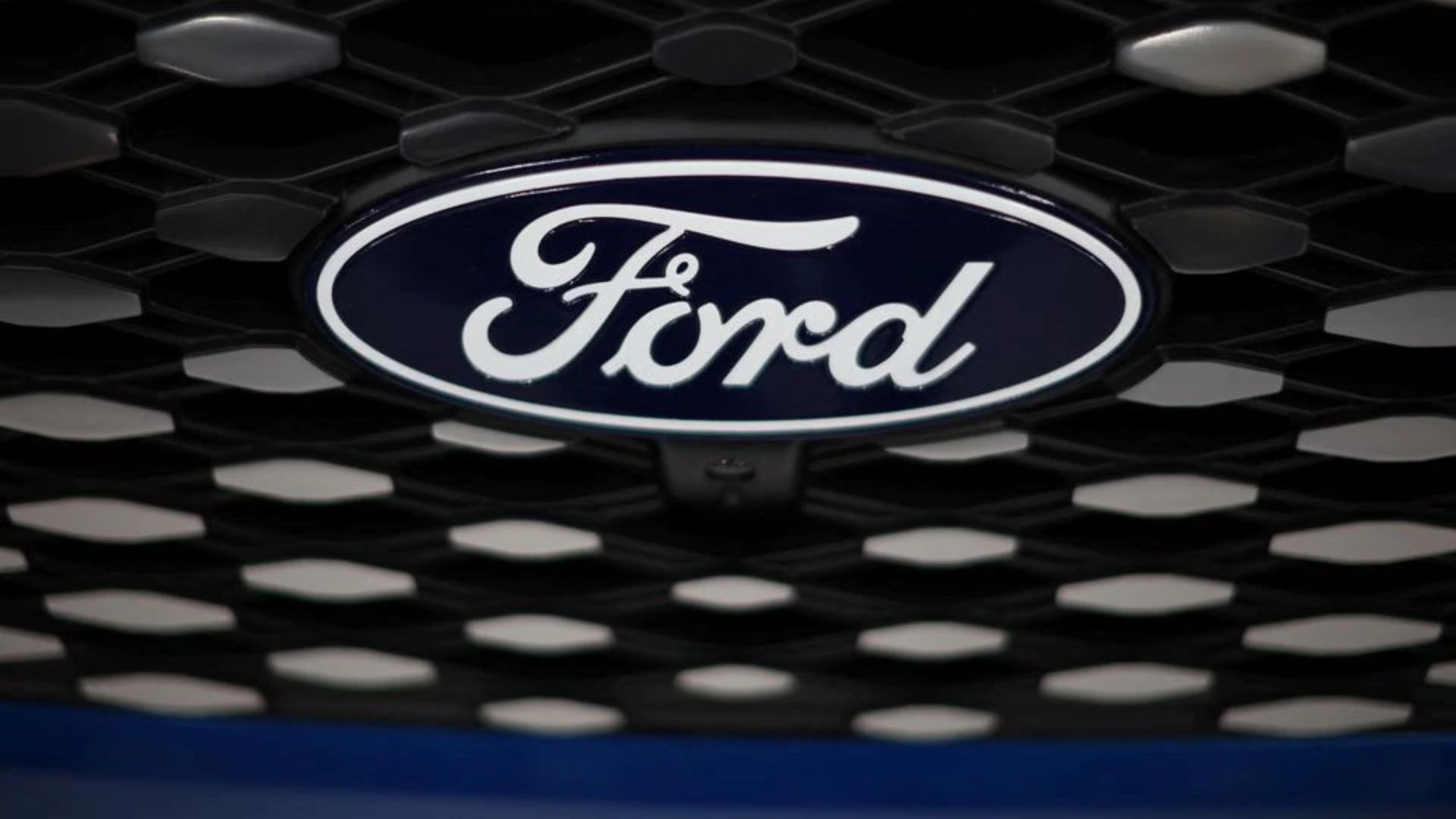- BYD, Magna, VDL Nedcar possible investors in Saarlouis – reports
- Ford hopes to pick investor for site within Q1 – works council
- Negotiations ongoing over planned job cuts in Europe – union
- Works council threatens disruption if jobs not secured
BERLIN, Jan 24 (Reuters) – Ford (F.N) will decide by mid-February how many jobs to cut in Europe, a German union said on Tuesday, as reports surfaced that BYD (002594.SZ) and car contract manufacturer Magna (MG.TO) were interested in buying one of the U.S. carmaker’s German sites.
The future of the site in Saarlouis, Germany has been unclear since last June when Ford picked a site in Spain to assemble its next-generation electric vehicle (EV) over the German plant, which will stop producing its current model, the Ford Focus, from 2025.
Among fifteen possible investors were companies in energy and car assembly as well as original equipment manufacturers, the works council chief of the Saarlouis site, Markus Thal, told Reuters.
The Wall Street Journal reported on Tuesday that Ford officials were travelling to China next week to visit BYD and discuss selling the site to the Chinese EV maker, citing sources familiar with the matter.
Autos publication Automobilwoche reported that Magna and VDL Nedcar were also among the fifteen interested investors.
“We are in ongoing discussions with a number of potential buyers and have nothing further to add at this time,” a Ford spokesperson said, declining to comment on the individual companies named.
Spokespeople for BYD and Magna declined to comment. VDL Nedcar could not immediately be reached for comment.
“It is of secondary importance which continent a possible investor comes from – if a carmaker comes, that’s what we would like to see, because it’s what we do,” Thal said.
He added that negotiations with possible investors had accelerated in recent months and the carmaker aimed to present a solution for the future of the plant by the end of the first quarter.
“We need a plan urgently,” he added, saying workers would not wait until 2024 for a solution.
BYD told Reuters in October it was looking to produce electric cars in Europe, where it currently only makes electric buses at a plant in Hungary.
It sells three Chinese-made cars in a handful of European markets and said last November it plans to add more models and markets this year, one of numerous Chinese brands targeting Europe’s growing EV market.
Separately, union representatives for Ford’s largest German site in Cologne will meet on Saturday to discuss planned job cuts which the works council informed workers of in meetings on Monday.
Management figures were invited to present their plans to the workforce but did not provide any details, according to the works council.
The worst-case scenario was up to 2,500 job cuts in product development and a further 700 in administration, a union spokesperson said. A second scenario was also on the table, they added, declining to provide details.
A Ford spokesperson declined to comment on the planned cuts, referring to a Jan. 20 statement in which it said that the shift to EV production requires structural changes and it would not say more until plans are finalised.
The carmaker has committed to an all-electric lineup in Europe by 2030 and its U.S. leadership has repeatedly flagged that EVs require less labour.
Its European staff last saw a wave of job cuts in 2019 and 2020 as the carmaker pursued a 6% operating margin in the region, a goal thrown off course by the coronavirus pandemic, with pretax profit margins in Europe in the first nine months of 2022 at just 2.2% of sales.
The workers council in Cologne has demanded that management commit to no layoffs before Dec. 31 of 2032, and that the roughly 2,500 product development staff there remain part of the automaker’s global development landscape.











